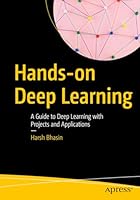
BASICS OF PROGRAMMING: Python programming for beginners
- Length: 177 pages
- Edition: 1
- Language: English
- Publication Date: 2020-11-01
- ISBN-10: B08MDXLVZG
This tutorial is not a textbook for one of the popular languages. programming. After reading it, you will not become a C # pro or Java, using the acquired skills to find the most profitable offers on the labor market. The book is also not intended for teaching programming methodology at a level higher than the initial one. IN there are no descriptions of methods for writing efficient algorithms, building user interfaces, access to databases, etc., although these topics are indirectly covered in it. The goal is to illuminate the base principles of modern programming, with examples in C and C ++ and a little introduction to functional (Lisp), logical (Prologue) and visual programming.
There are currently about eight thousand languages programming, and some are not like the others.
In the introduction, you can talk about the historical retrospective for a long time subject, about its connection with related disciplines, significance for life modern society, etc. All these aspects are important, but how it seems to the author, at the very beginning it is better to immerse the reader in the essence what he has to learn. Get an idea of the subject a set of examples – semantically equivalent programs can help (more about what syntax and semantics are, will be discussed further), which do the same thing, being executed on a computer, equipped with appropriate means. The programs look on these languages in different ways. Following the example of Lawrence Tesler [1, p. 76], we use for illustration not the trivial example “Hello, world!”, but
program,having(conditionally)appliedvalue –
counting the sum of the odd numbers included in the sequence whole numbers. So let’s move on to examples

Arduino & MicroPython with ESP32: A Beginner's Guide to Hands-On Learning and DIY Projects - Part 1






